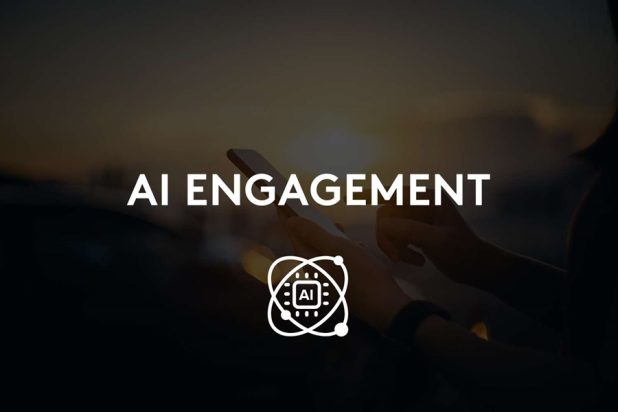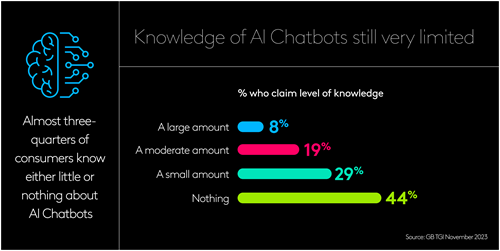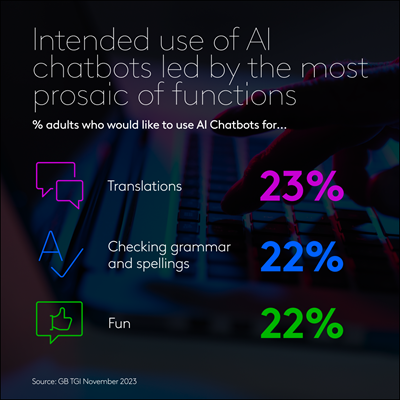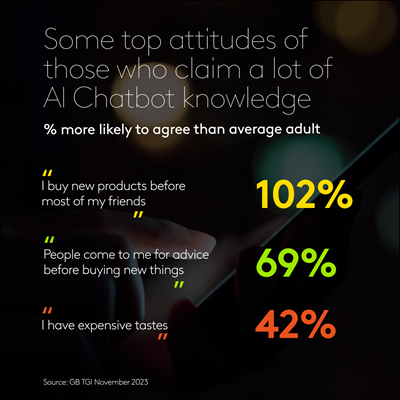With AI tools increasingly filtering into our daily lives we take a look at how consumers are engaging with this evolving tech
Almost three-quarters of consumers know either little or nothing about AI Chatbots

Far from being the only major AI player in town these days, ChatGPT increasingly finds itself just one of a broad range of AI tools that are being released with ever-increasing frequency. Windows for example is currently rolling out Microsoft Copilot, designed to help users with almost any work task. Similarly, Elon Musk announced recently the rollout of Grok on X (formerly Twitter) which he suggests has a number of advantages over other AI tools.
But how do consumers today feel about AI generally and how do they see it helping them in their everyday lives? New November GB TGI monthly data just released reveals that the public’s understanding of all things AI is still very niche. Almost three-quarters (73%) of consumers in Britain feel they know either a small amount or nothing about AI chatbots.

Beyond this, most people have a very cautious view of AI. Currently only 38% of adults (20 million people) believe that AI chatbots can be a helpful tool for society. Meanwhile, 61% of adults say they are concerned about upcoming Artificial Intelligence in the future and 64% have concerns that AI chatbots might be used for unethical purposes.
So where do consumers see AI chatbots as being useful in their lives? The most anticipated uses are some of the most prosaic and limited in scope: translations and checking spellings. Clearly the wider scope of functions chatbots can provide is yet to be realised or fully understood by many consumers.

But who are the early adopters of AI who may help to prompt an acceleration in adoption? TGI reveals that those who claim to have a large amount of knowledge about AI chatbots are particularly likely to be male and to be young. Indeed, they are well over twice as likely as the average adult to be aged 15-24 and 45% more likely to be male.
Those confident about AI chatbots are also particularly likely to claim to be the first to buy products, to feel others come to them for advice before making purchases and to not be afraid to splash out on what they want to buy.
